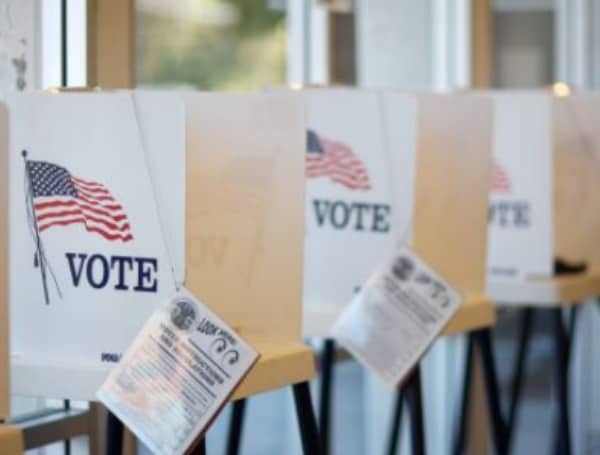As the 2024 elections approach, the battle over congressional redistricting in ten key states could decide which party controls the U.S. House of Representatives.
Redistricting, the process of redrawing electoral district boundaries based on the latest census data, has sparked intense political struggles, with both parties vying for an edge.
The ten states at the center of these redistricting battles are Texas, Florida, North Carolina, Ohio, Pennsylvania, Georgia, Michigan, Wisconsin, Arizona, and Nevada.
Read: Two Florida Appeals Courts Revive Voter-Fraud Charges Against Felons
These states, with their significant number of congressional seats and politically diverse populations, are critical to the balance of power in the House.
Texas and Florida: The Heavyweights
Texas and Florida, with their large and growing populations, are particularly crucial. Texas gained two additional House seats after the 2020 Census, increasing its total to 40.
Florida gained one seat, bringing its total to 29. Republicans, who control the legislatures in both states, have the upper hand in drawing new district lines. However, demographic shifts and court challenges could complicate their efforts to secure a lasting advantage.
North Carolina and Ohio: Legal Battles
North Carolina and Ohio have seen prolonged legal battles over gerrymandering, where district boundaries are manipulated to favor one party.
The Supreme Court’s decision to allow federal courts to intervene in extreme cases of partisan gerrymandering has added a new dimension to the redistricting fight.
Read: California Rep. Nancy Pelosi Urges President Biden To Reconsider Candidacy In Private Call
A state court recently struck down the Republican-drawn map in North Carolina, calling for a more balanced redrawing. Ohio faces similar legal scrutiny, with both parties poised to challenge any map perceived as unfair.
Pennsylvania and Georgia: Demographic Shifts
Pennsylvania and Georgia are experiencing significant demographic changes, making their redistricting processes highly contentious. Suburban growth and shifting political allegiances in Pennsylvania have made it a battleground for both parties.
With its rapidly diversifying electorate, Georgia has become a focal point for redistricting disputes. Democrats hope to capitalize on these changes to gain ground in traditionally Republican areas.
Midwestern Battlegrounds: Michigan and Wisconsin
Redistricting battles are heating up in Michigan and Wisconsin as both states undergo independent redistricting processes.
Read: Judge Sets Hearing Date For Washington Post Lawsuit Over Florida Gov. DeSantis’ Travel Records”
Michigan’s independent commission, created by a voter-approved initiative, aims to create fairer districts. The closely divided state legislature in Wisconsin is expected to produce fiercely contested maps, likely resulting in court intervention.
Western Front: Arizona and Nevada
Arizona and Nevada, with their growing populations and changing political landscapes, are also pivotal in the redistricting wars.
Arizona’s independent redistricting commission is pressured to balance competing interests, while Nevada’s Democratic-controlled legislature seeks to consolidate gains made in recent elections. Both states are crucial for Democrats looking to expand their House majority.
National Implications
The outcomes of these redistricting fights will have far-reaching implications for national politics. With the House currently narrowly divided, even small shifts in district boundaries could tip the balance of power.
Both parties invest heavily in legal battles, public campaigns, and grassroots mobilization to influence redistricting.
Help support the Tampa Free Press by making any small donation by clicking here.
Android Users, Click To Download The Tampa Free Press App And Never Miss A Story. Follow Us On Facebook and Twitter. Sign up for our free newsletter.

